The views expressed in our content reflect individual perspectives and do not represent the authoritative views of the Baha'i Faith.
When looking at the story of Adam, there are a number of sources you can look at. For myself, I chose to use the Stone translation of the Tanakh, which is often called the Old Testament, as well as the Yusuf Ali translation of the Qur’an. Why those? Well, the Stone translation is, in my opinion, absolutely brilliant. It really conveys the meaning of the passages from the Jewish cultural perspective. As for the Yusuf Ali translation, it was recommended to me, and I like it. Can’t say much more than that.
Now at this point, I could go into the differences between the two perspectives of the story of Adam, but it really seems to me that there is so much out there already from people who are so much more qualified than I am that it would be silly for me to do so.
Suffice to say that Western history has generally not been kind to Adam. Many seem to portray Adam as a buffoon, who easily fell prey to the desire to please Eve and thus condemned all humanity. This, to me, does not seem a fair representation. In Islam, however, Adam is seen as a Prophet of God, for God did speak directly to Him.
But then we run into the seeming contradiction of Adam being a Prophet, Who is righteous and good, and yet He disobeyed God by eating of the fruit of the Tree of the Knowledge of Good and Evil.
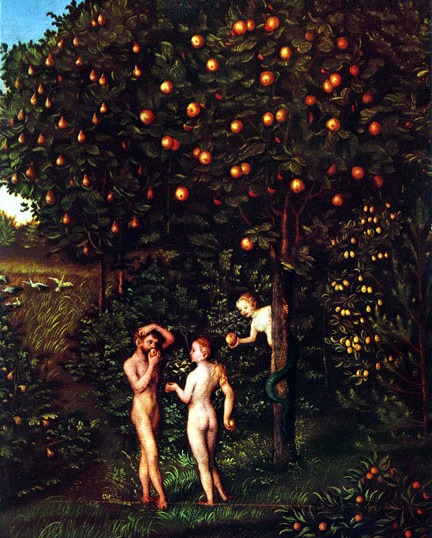
Tree of the Knowledge of good and evil
Oh, I think I should put in a bit of an aside here. For a long time this story was used as a basis for the persecution of science. Not the only one, to be sure, but still it was a stone in the foundation of this attack. When you ask most people why Adam and Eve were cast out of Eden, they will usually say it was because they ate an apple from the tree of knowledge. Well, that’s just not accurate. It was specifically the Tree of the Knowledge of Good and Evil. And so, when there were persecutions against scientists, people of knowledge, which was the result of “eating the forbidden fruit”, that seemed to be based on an error of memory.
Also, by putting the initial blame on Eve, as it does in Genesis, this has also been a source of “proof” of the inferiority of women. At least in the Qu’ran, Adam and Eve are equally blamed, so this has also fallen by the wayside.
But there is another question that arises. In the Bible, we read that by eating of the fruit of the Tree, Adam would surely die. It is obvious that Adam was not going to die only because He ate of the fruit, for if that were the case, then why would there have been any concern about the Tree of Life? And besides, there is also that long standing question of why didn’t He die as soon as He ate of it? Obviously there is more to this than meets the eye.
And this is where Tahirih (an influential poetess, theologian and follower of the Báb in the 1800s) comes into the picture for me. Why Tahirih? I know. We didn’t mention her before this, so how does she come into it now?
Simple. She wrote a poem which has been called Adam’s Wish, and it is this masterpiece of a poem that initiated my original thought train on this particular track.
What if we presume that Baha’u’llah and the Qur’an are both correct, and that the Bible has a hidden story for us, if we but care to dig a bit deeper?
Let’s see.
Oh, and for those who wish to look to Abdu’l-Baha (appointed successor to the Baha’i Faith), I would highly recommend His analysis of one interpretation of the story of Adam that He gives in Some Answered Questions. At the very end of it, though, He tells us,
“This is one of the meanings of the biblical story of Adam. Reflect until you discover the others.”
And so I am. Here is a bit of what I have found for myself.
To start, Adam is a Manifestation of God, the very One Who began the entire Adamic cycle, a progressive series of revelations from God to humanity including all the Messengers from Adam through Muhammad and the Báb.
“…(H)ad the religion taught by Adam not existed,”
writes the Báb,
“this Faith would not have attained its present stage.”
Given that Adam is a Manifestation, then He must have known what He was doing.
On one level, we could look at the story in a way suggested by Abdu’l-Baha:
“Remember how Adam and the others once dwelt together in Eden. No sooner, however, did a quarrel break out between Adam and Satan than they were, one and all, banished from the Garden, and this was meant as a warning to the human race, a means of telling humankind that dissension — even with the Devil — is the way to bitter loss. This is why, in our illumined age, God teacheth that conflicts and disputes are not allowable, not even with Satan himself.”
But it is fairly sure that this is not the one and only way of looking at this story of Adam.
Time and again the Master reminds us that it was Adam Who gave us our physical life.
“Know that there are two natures in man: the physical nature and the spiritual nature. The physical nature is inherited from Adam, and the spiritual nature is inherited from the Reality of the Word of God, which is the spirituality of Christ. The physical nature is born of Adam, but the spiritual nature is born from the bounty of the Holy Spirit. The first is the source of all imperfection; the second is the source of all perfection.”
It is His being the source of imperfection that has been taught to us throughout history.
But does it make sense to think of the results of the teachings of a Manifestation as the source of all imperfection? Surely not.
Perhaps we can see it, instead, as that which impelled us to find our limits. It is, after all, when we find our natural limits, test our boundaries, explore our horizons, that we are able to grow. In the womb, when we were but a small cluster of cells, we bumped into the uterine wall and it is that very spot in which we bumped that our nervous system began to develop. As we continued to grow, it was when we expanded as much as we could, and were pressing against the limits of the uterus (and probably our mother’s patience) that we were impelled to move through the trauma of birth and enter into this world. It is here, as a young child, that we began to explore our physical limits and were told “no” by our parents, and that is when we began to learn a bit about our own safety, growing into confidence as we moved more cautiously and carefully. Now, as we interact with others, we are impelled to develop our virtues so as to better mingle and merge with the world around us.
By setting us on this journey, it was Adam Who began this whole process that has allowed us collectively, as humanity, to grow and develop, finally maturing enough to receive the Revelation of Baha’u’llah (Prophet-Founder of the Baha’i Faith).
“Contemplate with thine inward eye”,
He states,
“the chain of successive Revelations that hath linked the Manifestation of Adam with that of the Báb. I testify before God that each one of these Manifestations hath been sent down through the operation of the Divine Will and Purpose, that each hath been the bearer of a specific Message, that each hath been entrusted with a divinely-revealed Book and been commissioned to unravel the mysteries of a mighty Tablet.”
And here we come to Tahirih. It was in her poem that I first read of the idea that Adam was very aware of what it was He was doing. He accepted to be blamed for all our ills so that we might embark upon this mighty course. It was He Who saw that by this action we would, 6000 years later, be ready to hear the Messages of the Báb and then Baha’u’llah. It was He who knew that there is no inherent virtue in telling the truth when lying is not even possible, and so allowed us to develop the various spiritual virtues by having us understand their absence.
It was Adam, that first Messenger in the whole cycle described by Shoghi Effendi (Head of the Baha’i Faith 1921-1957), who took us on that first step of this long and miraculous journey of spiritual growth.
You May Also Like
Comments



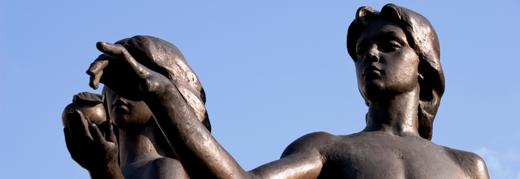
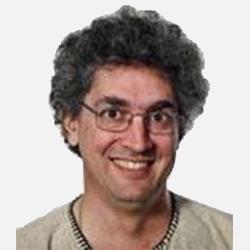
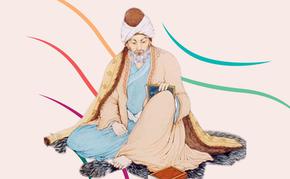
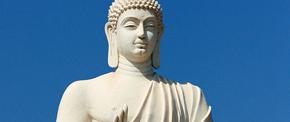










unfortunately the Europeans have been put on the pedestal by the rest ofthe world as knowledgeable people. they used this assumption in the past in the colonies even to spread religion with wrong meaning regarding the role of Adam and other prophets, making them almost a caricature of some eastern fable. Thanks be to God that our minds are no longer clouded, that the peoples of the ...earth are one no better no worse than one another just with different understanding. Religion is not a personal property to be fought over. rather it is a door to gain further knowledge about ourselves and our destiny. thank you